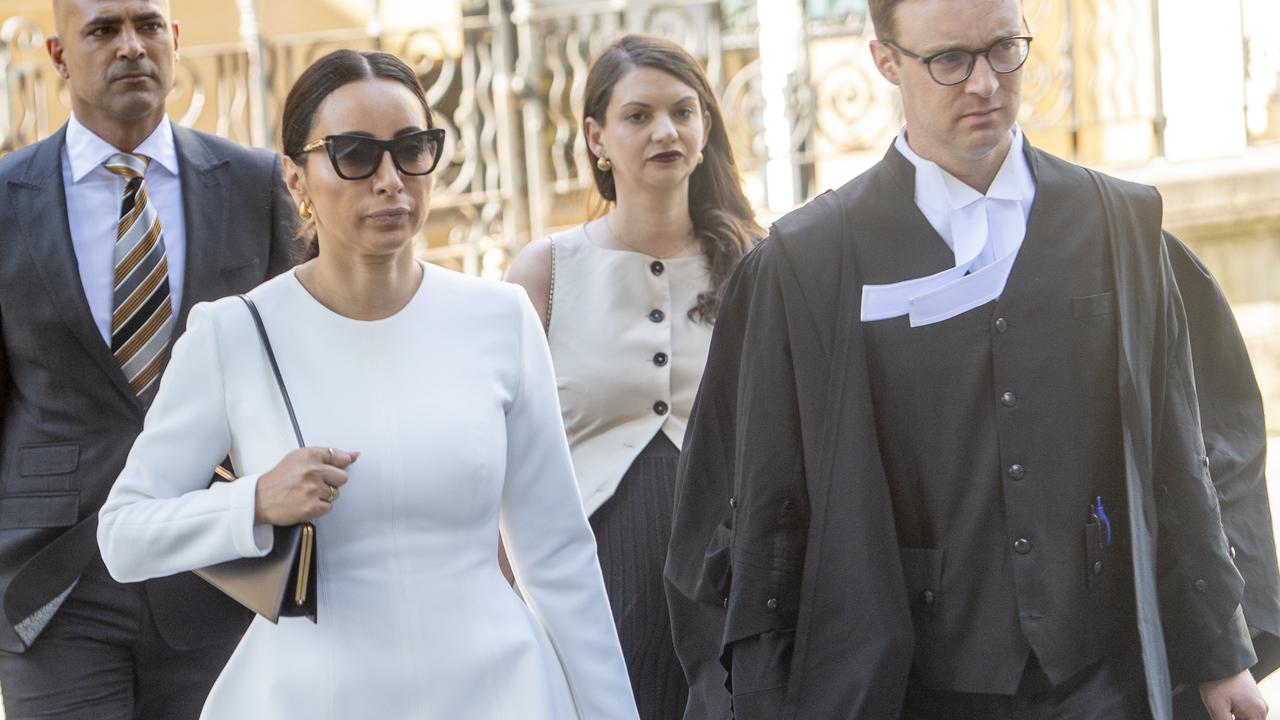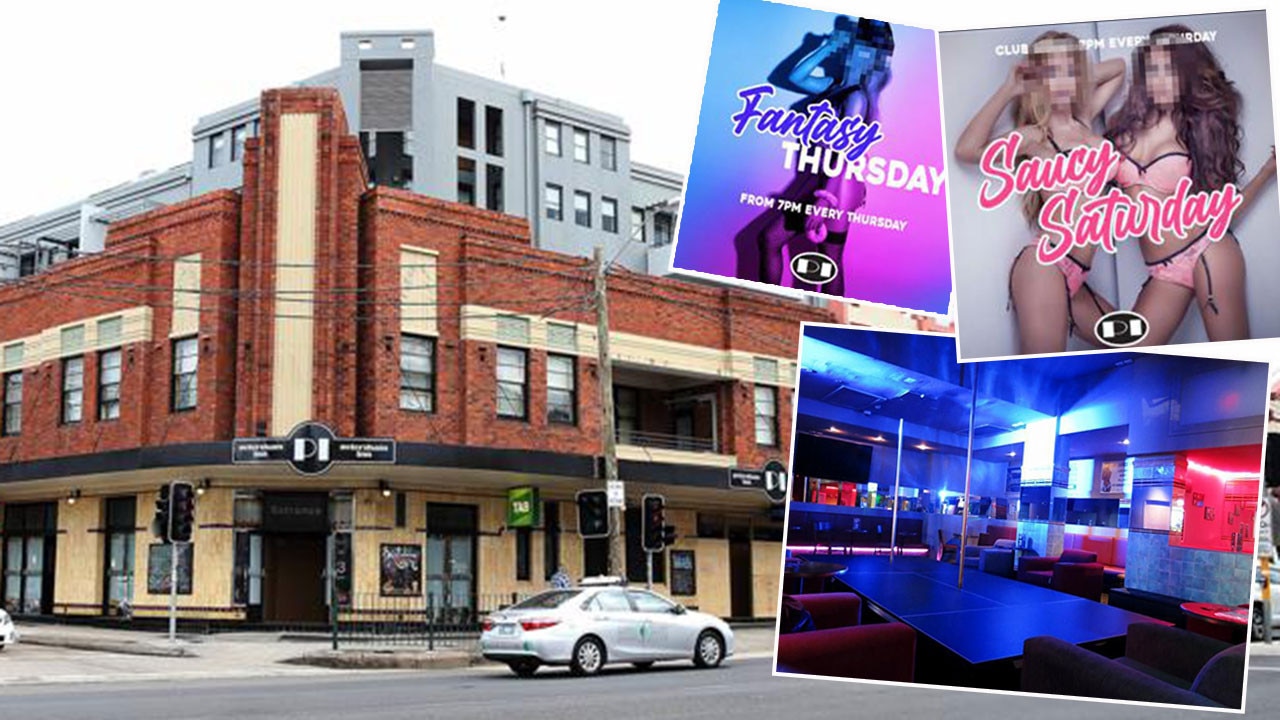Government funding needed to help find cure for childhood brain cancer
WHEN your child is diagnosed with brain cancer, it is almost certainly a death sentence. Parents are begging for more government funding to help find a cure. Finn Marker was eight when he lost his battle with the disease.
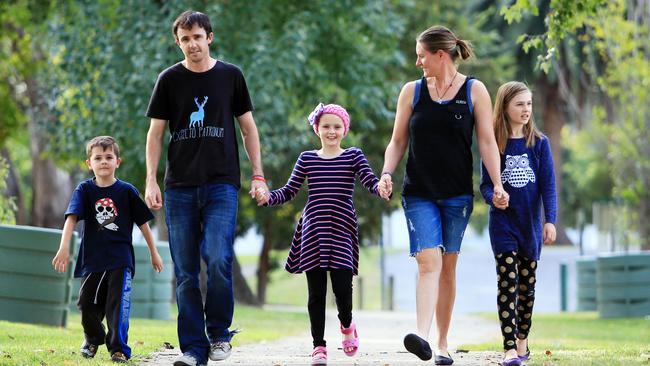
NSW
Don't miss out on the headlines from NSW. Followed categories will be added to My News.
EVERY nine days, an Australian child dies of brain cancer.
It is the deadliest childhood disease in this country yet there is so little government funding that survival rates have not improved in three decades — only one in five survives for more than five years.
Desperate parents are forced into raising money to try to find a cure for their dying children or to head overseas seeking experimental treatments.
Today, we launch our campaign to change that.
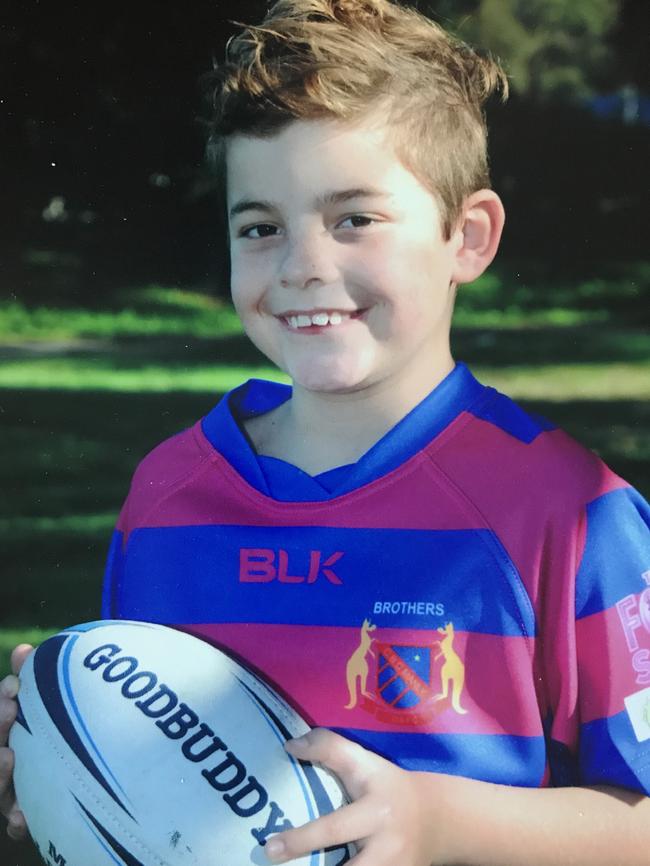
Last week the federal Government announced a $13 million fund for rare cancer research but, in reality, funding for brain cancer has gone backwards.
“There are hundreds of rare cancers and brain cancer needs a hundred times the investment to save children’s lives,” leading brain cancer researcher Associate Professor Kerry McDonald said. “It’s nothing. It will fund 10 projects and maybe only one will be for brain cancer.”
Sydney mum Bridget Marker knows the agony the disease inflicts on families.
“My only son is being stolen from me by brain cancer. Finn has said to me recently: ‘Mummy, have the doctors got the medicine to make me better?’ and: ‘Am I going to die?’,” Ms Marker wrote in her submission to a senate inquiry into funding for research into cancers with low survival rates back in March.
Her eight-year-old son Finn was suffering from brain cancer. The doctors did not have the medicine and Ms Marker had to look her child in the eye and explain the terrifying truth.
Tragically, Finn died on July 20.
“It will take a politician’s child to get this to force change, but how many children will have to die beforehand? Having to tell your child he is going to die is just horrendous,” the Narraweena mum said.
DONATE TO HELP CURE BRAIN CANCER
Finn’s story is one of the hundreds of heartbreaking accounts currently before the inquiry, which was established by brain tumour survivor and Labor senator Catryna Bilyk.
“We lose an entire classroom full of kids to brain cancer each year, around 35 to 40 children. A lot of parents are told there is no real treatment so a lot are out there fundraising and it is not appropriate that they are out there doing the fundraising,” Ms Bilyk said.

All children like five-year-old Fred Corbett want is a similar chance as those who develop childhood leukaemia.
Nine out of 10 children with leukaemia now survive thanks to research advances in the last 40 years. But survival rates for brain cancer have not improved for decades.
Diagnosed at three, Fred’s medulloblastoma relapsed in January, meaning the odds are stacked against him. After intensive radiation treatment, which finished in June, his mother Marion said they take each day as it comes now.
“We live in limbo, from scan to scan. As a parent you feel so powerless. I think it is out of sight, out of mind and the squeaky wheel gets more, the higher profile cancers,” the Dundas mother said.
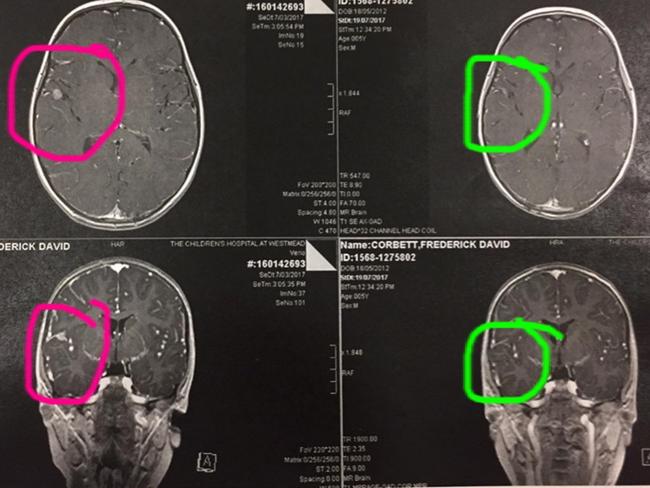
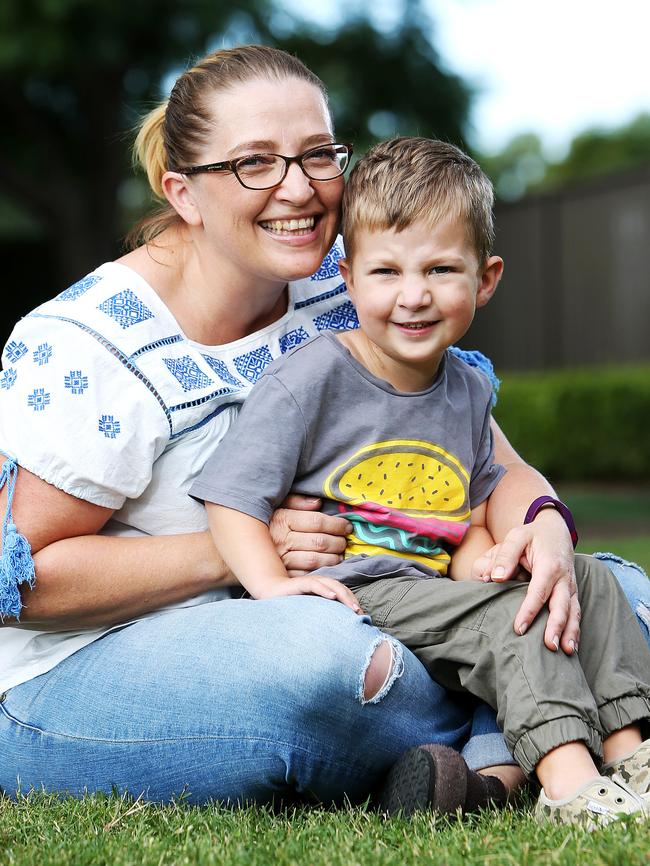
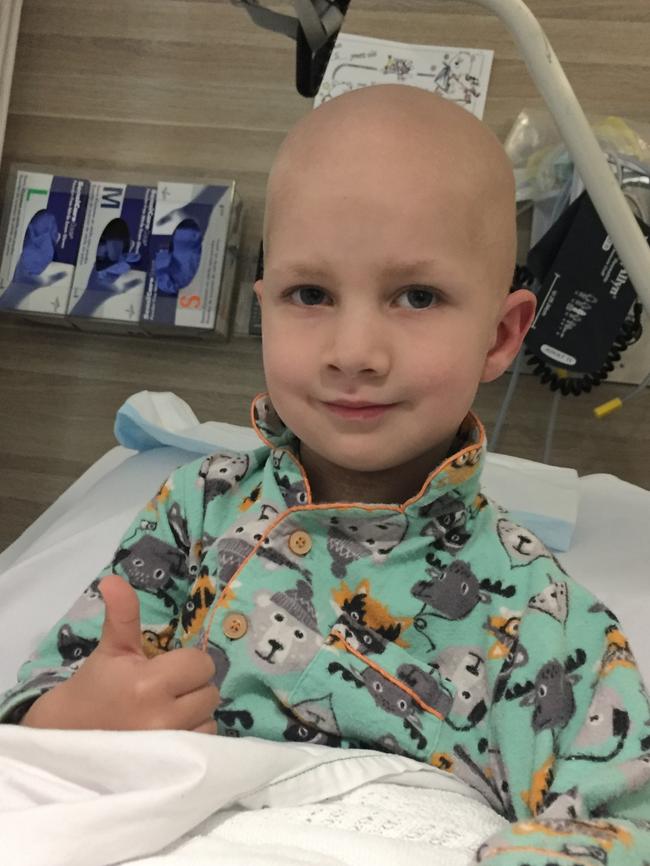
Dr Robert De Rose co-founded The Isabella and Marcus Paediatric Brainstem Tumour Fund after his six-year-old daughter Isabella died of a paediatric brain stem tumour in 2008.
He and his wife were “stunned” there was no treatment, let alone much research into Isabella’s form of brain cancer.
“There was very little understanding about the nature of this disease, which would serve as a basis for developing treatments. Hence no chemotherapy was available,” he said.
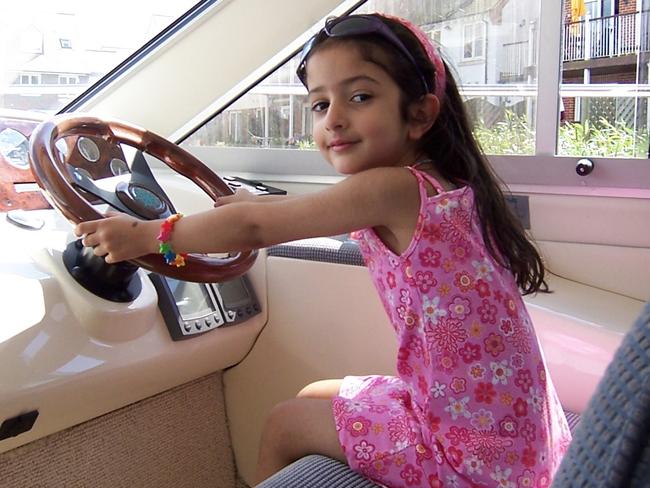
The fund has since raised more than $1 million to provide seed funding for research.
“There is something inherently wrong when the responsibility for the health and wellbeing of desperately ill children is being met by charities and not by our government,” Dr De Rose said.
Dr De Rose, a research scientist himself, said Australia is “50 years behind what has been done for leukaemia, childhood leukaemia used to kill nearly all children, now it has a 90 per cent survival rate. That is what you can achieve if funds are available to do research.
“Over time there is a skewing of funding towards cancers with better prognoses and researchers who struggle with the more difficult cancers have to abandon their research because of lack of funding.”
Canberra parents Kathie and Adam Potts are in a desperate battle to save their four-year-old daughter Annabelle, who also suffers from the same cancer as Isabella did and has just four months to live.
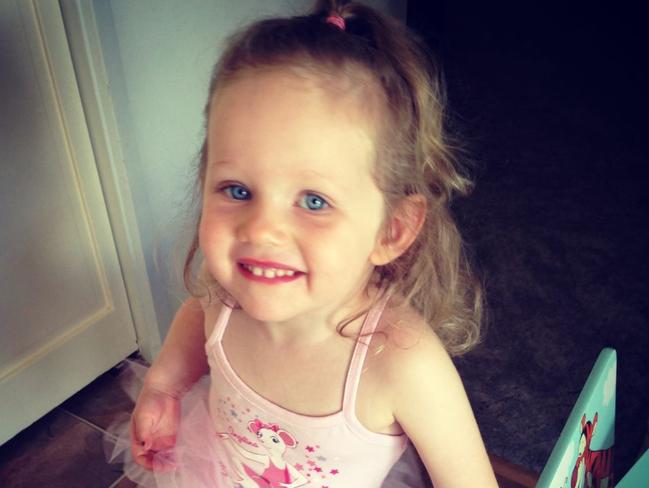
The Potts family has gone to Mexico where Annabelle is undergoing experimental treatment.
“I feel incredibly disappointed we’ve had to come to Mexico. I have lost trust in the Australian healthcare system and especially in the Australian government,” Ms Potts said.
HELP ANNABELLE FIGHT HER BATTLE WITH BRAIN CANCER
In April, Dustin Perry, who has been told by doctors his nine-year-old daughter Chloe is dying of brain cancer, wrote to Prime Minister Malcolm Turnbull begging for more research dollars.
“You are the leader of our nation, and I am asking that you take some responsibility for the unacceptable amount of suffering and loss that brain cancer is causing Australians,” he wrote.
“I am a father pleading with you to take action on this, and dramatically increase brain cancer funding to facilitate the research and clinical trials that could possibly save my daughter’s life, as well as thousands of others, here and around the world.”
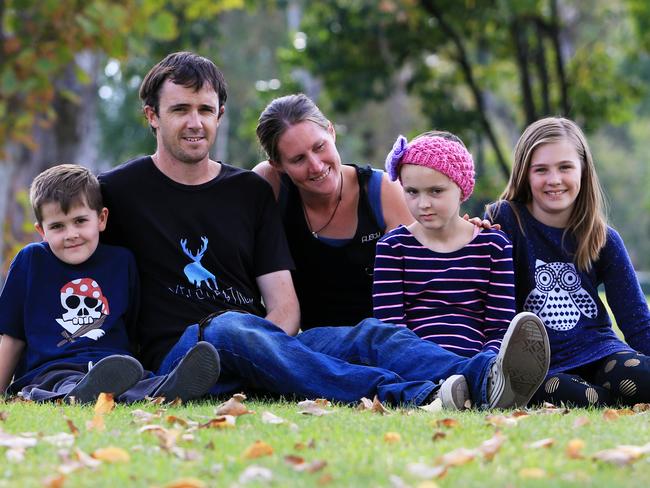
“It kills more kids than any other disease and whatever is killing the most kids should attract the most effort,” Mr Perry told The Sunday Telegraph.
“The thing that drives me insane is the amount of money government spend on irrelevant stuff, I think brain cancer is one of the most important things if it is affecting this many children.”

